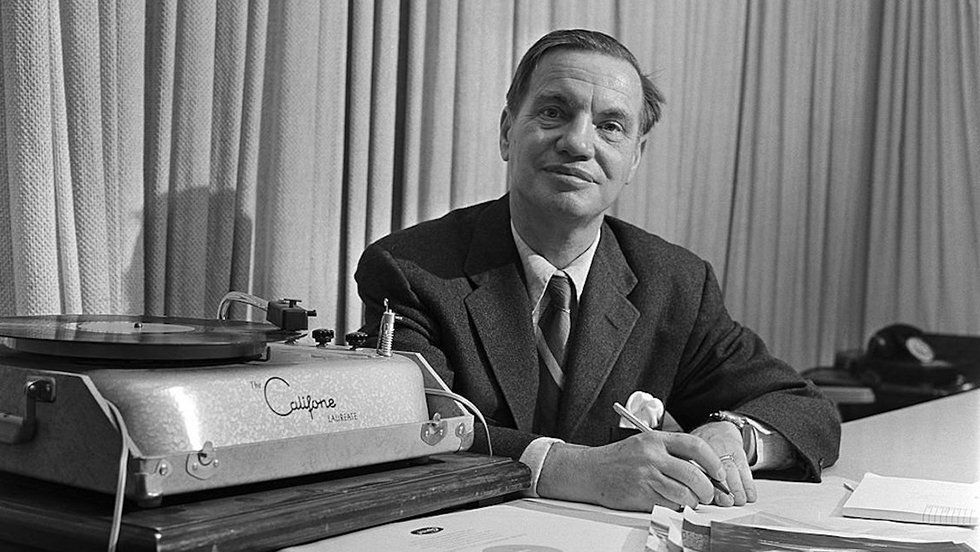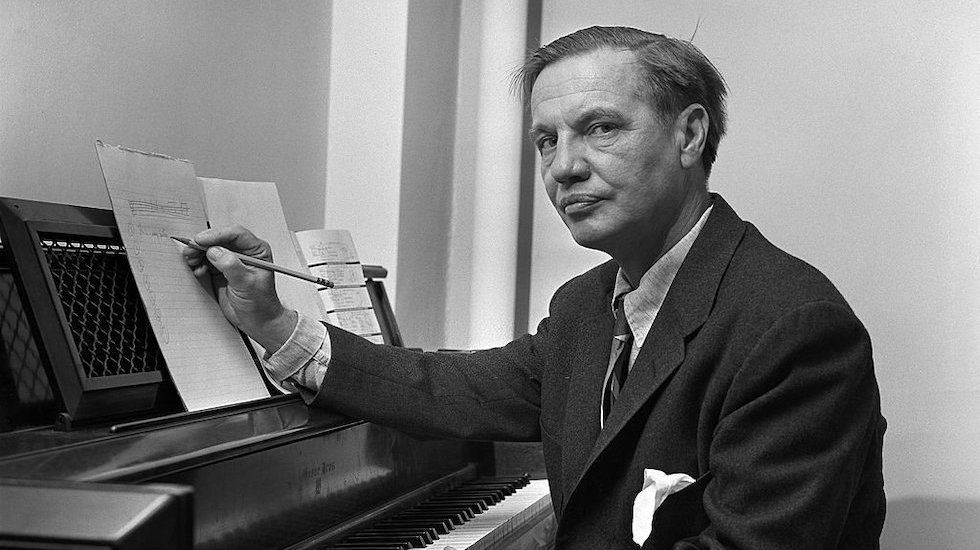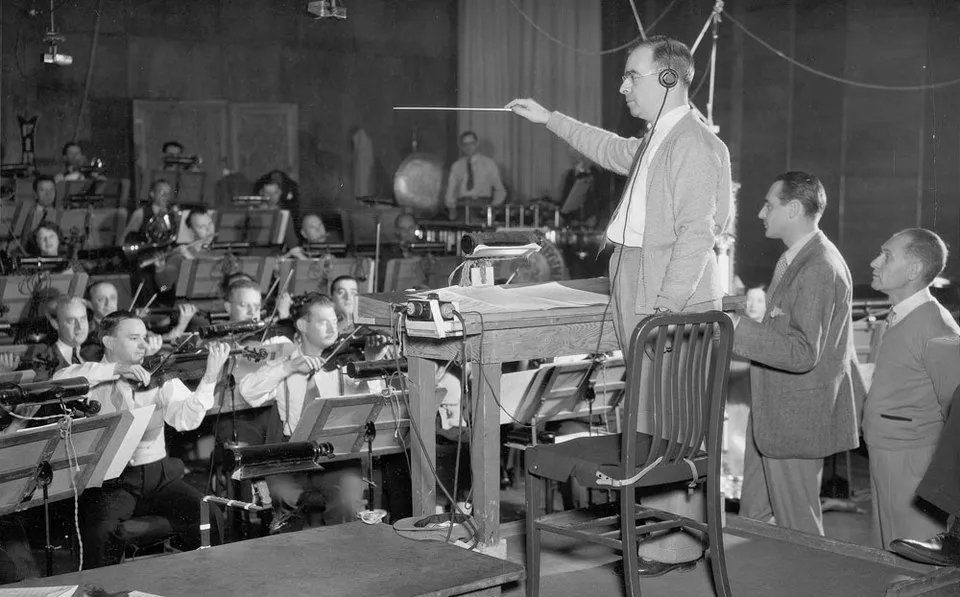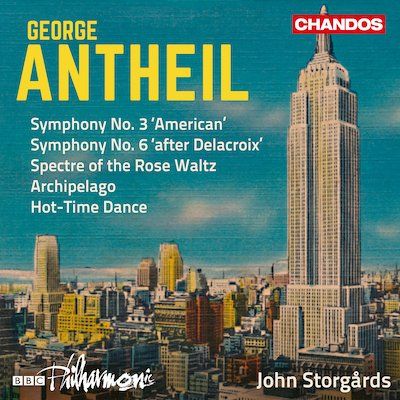George Antheil 1900-1959

George Antheil, the "Bad Boy of Music," has turned out provocative motion picture scores with greater consistency for a longer period of time than almost any other Hollywood composer. His string of successes ranges from the Ben Hecht-Noel Coward picture, THE SCOUNDREL, to the current Stanley Kramer-Kirk Douglas hit, THE JUGGLER. In between there have been such divergent films as Hecht's ONCE IN A BLUE MOON, ANGELS OVER BROADWAY and SPECTRE OF THE ROSE; DeMille's THE PLAINSMAN; the Humphrey Bogart films, KNOCK ON ANY DOOR and IN A LONELY PLACE; the rollicking THE PLAINSMAN AND THE LADY; and another Kramer film, THE SNIPER.

George Antheil was born in Trenton, New Jersey, on July 8, 1900, the son of a Polish political exile. He studied piano and theory with Constantin von Sternberg (1852-1924), Uselma Clarke Smith, and Arthur Schnable, and composition with Ernest Bloch between 1919 and 1921. Antheil went to Europe in 1921 to pursue a career as a touring concert pianist meeting Stravinsky in Berlin and thereafter moved to Paris in 1923. Early on he earned a reputation as the “enfant terrible” of modern music, composing sonatas, ballets, and symphonic works in an avant-garde style generally characterized by a lack of melody. His most notorious work from this period is Le Ballet mécanique originally conceived for an experimental film in 1924 directed by the French Cubist painter Fernand Léger (1881-1955). He re-scored this work twice for public performances in 1926 and 1927 (New York) for anvils, two octaves of electric bells, motor horns, sixteen player-pianos controlled from a switchboard, and pieces of tin and steel. Antheil said

The technic of writing motion picture music is complicated by many elements unknown to the musician of yesteryear. First of all the average theatre, ballet or opera composer of the past had to contend only with a few changes of scene, whereas the motion picture flies out of space and time, from cut to cut and second to second. How is one to illustrate a background flashing from galloping horsemen to pastoral scenes and on to three or four other varied shots? Writing two measures gallop music, one second pastoral music, and so on to the end of the film will obviously not answer. Neither can one ignore what is happening upon the screen and work away at a symphonic form hoping somehow to secure a metaphysical background or the sense of what is going on.
Reviews

These two symphonies, that hopefully are the first recordings in a new Chandos series, will maybe further establish Antheil as a composer well worthy of consideration. This follows earlier releases of his music, especially on the CPO and Naxos labels and various others, including an interesting Cala album that compares recordings of Antheil’s and Vaughan Williams’s Fourth Symphonies conducted by Leopold Stokowski.

This is not the wild and wacky Antheil in the phalanx of shock troops of the 1920s alongside Luening, Cowell and Ornstein. Oh no - this is Antheil in total immersion in the super-confident American continent, north and south. It's the second volume in Chandos' Antheil series (Volume 1). The music here is all tonal and overtly American - the blood-line traces its way to Antheil from, say, today's Michael Daugherty and before that Del Tredici. It's in the same hemisphere but different. My blundering overview of what can be heard here will take you to Hollywood, a North American's perspective on South America and big-hearted Americana of the 1930s and 1940s.



